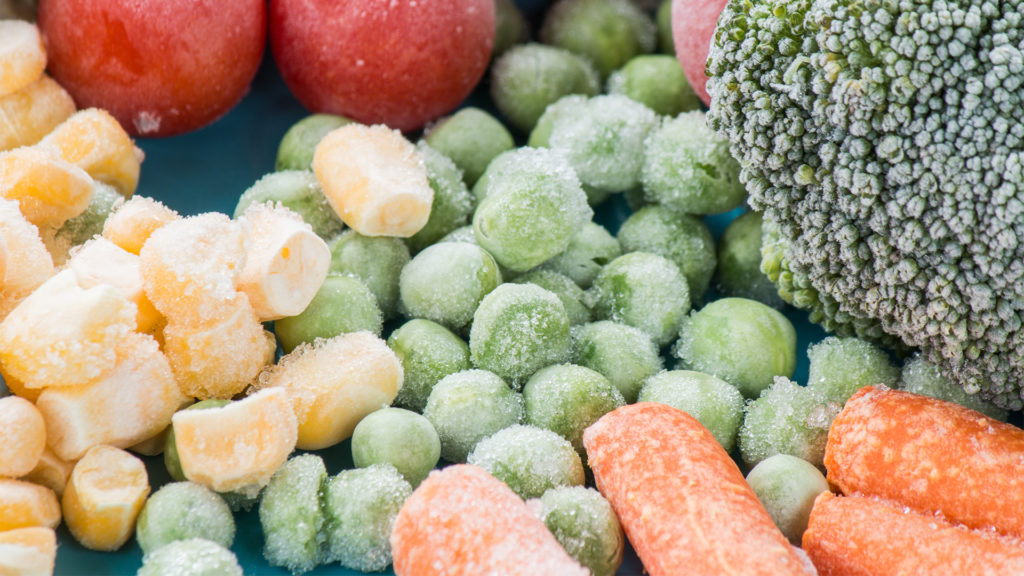Frozen foods fit every family’s lifestyle without compromising nutrition or taste while allowing for clear portion guidance. Some university-based studies have even shown that the nutritional value of certain frozen fruits and vegetables is actually greater than fresh-stored produce.

Selected nutrient analyses of fresh, fresh-stored, and frozen fruits and vegetables. 2017. Linshan Li, Ronald B. Pegg, Ronald R. Eitenmiller, Ji-Yeon Chun and Adrian Kerrihard. Journal of Food Composition and Analysis, Vol. 59
In partnership with the Frozen Food Foundation, the University of Georgia (UGA) conducted a unique study comparing the nutrient content of eight commonly-purchased frozen and fresh fruits and vegetables. The study results reveal that the nutritional value of many frozen fruits and vegetables are generally equal to that of their fresh counterparts.

Total fruit and vegetable consumption increases among consumers of frozen fruit and vegetables. 2018. Nutrition, Vol. 46.
In a study supported by the Frozen Food Foundation, researchers assessed average fruit and vegetable and frozen fruit and vegetable consumption and the effect on nutrient intakes across sex and 10 age categories. The findings suggests that frozen fruit and vegetable consumers eat more total fruits and vegetables that non-consumers.

Vitamin, Mineral, Fiber, and Total Phenolic Retention in Eight Fruits and Vegetables: A Comparison of Refrigerated and Frozen Storage. Ali Bouzari, Dirk Holstege, and Diane Barrett. 2015. Journal of Agricultural and Food Chemistry, Vol. 63.
The Frozen Food Foundation partnered with the University of California-Davis (UC Davis) to evaluate the nutrient content of eight commonly-purchased frozen and fresh fruits and vegetables: blueberries, strawberries, carrots, corn, broccoli, green beans, green peas and spinach. The study found that freezing has a positive effect on the vitamin E content of the fruits and vegetables as compared with fresh. Additionally, the nutrient value of five minerals (calcium, magnesium, zinc, copper and iron), fiber and total phenolics (health-promoting plant compounds) were, for the most part, well-conserved in frozen fruits and vegetables as compared to fresh.



